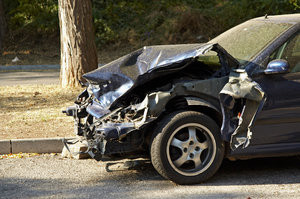A high-profile Boston drunk driving case recently resulted in conviction, just ahead of the Thanksgiving holiday – the No. 1 holiday for drunk driving deaths nationally. While public derision and criminal penalties can serve as powerful deterrents, it doesn’t necessarily make drunk driving victims whole. That’s why our Boston drunk driving accident attorneys are committed to fighting for compensation for victims. Note that civil lawsuits will be handled entirely separate from the criminal case, and a criminal case conviction won’t necessarily result in a civil case win. That’s why you need an experienced DUI injury lawyer.
By now many residents in the Greater Boston area have heard about the DUI arrest that led to a major scandal with the Massachusetts State Police (MSP). According to a recent news report from the Boston Globe, the daughter of a local judge was detained following an alleged drunk driving accident in Framingham, Massachusetts. Prosecutors alleged that the arresting state trooper wrote in his police report that the defendant admitted to performing sexual acts for drugs or money and also offered to provide sexual acts on the trooper if he would give her a break on the operating under the influence of liquor and drugs charge she was about to face.
 Prosecutors say the trooper declined her offer and put all this in his report along with her allegedly telling him that her dad was a judge and, “would kill her” if he read what she said in the police report. At this point, prosecutors alleged the trooper was pressured by the state police colonel to remove these allegations from the police report to spare her and her father the embarrassment. There were also requests to remove the allegations from the report with the office of the district attorney. There have been no allegations that her father participated in any way with these efforts to redact the police report. Her father did however, come to the MSP barracks and picked her up and found her fading in and out of consciousness. The MSP Colonel resigned in connection with this scandal. Continue reading
Prosecutors say the trooper declined her offer and put all this in his report along with her allegedly telling him that her dad was a judge and, “would kill her” if he read what she said in the police report. At this point, prosecutors alleged the trooper was pressured by the state police colonel to remove these allegations from the police report to spare her and her father the embarrassment. There were also requests to remove the allegations from the report with the office of the district attorney. There have been no allegations that her father participated in any way with these efforts to redact the police report. Her father did however, come to the MSP barracks and picked her up and found her fading in and out of consciousness. The MSP Colonel resigned in connection with this scandal. Continue reading
 According to a recent news article from CBS Boston, a man has just been arrested in Dracut, Massachusetts for a drunk driving crash in which he allegedly slammed his car into the Dracut Department of Public Works (DPW) building. Authorities have said the 50-year-old defendant, who is from Dracut, was driving his vehicle at around 4 p.m. when the crash occurred. Continue reading
According to a recent news article from CBS Boston, a man has just been arrested in Dracut, Massachusetts for a drunk driving crash in which he allegedly slammed his car into the Dracut Department of Public Works (DPW) building. Authorities have said the 50-year-old defendant, who is from Dracut, was driving his vehicle at around 4 p.m. when the crash occurred. Continue reading Boston Drunk Driving Accident Lawyer Blog
Boston Drunk Driving Accident Lawyer Blog










